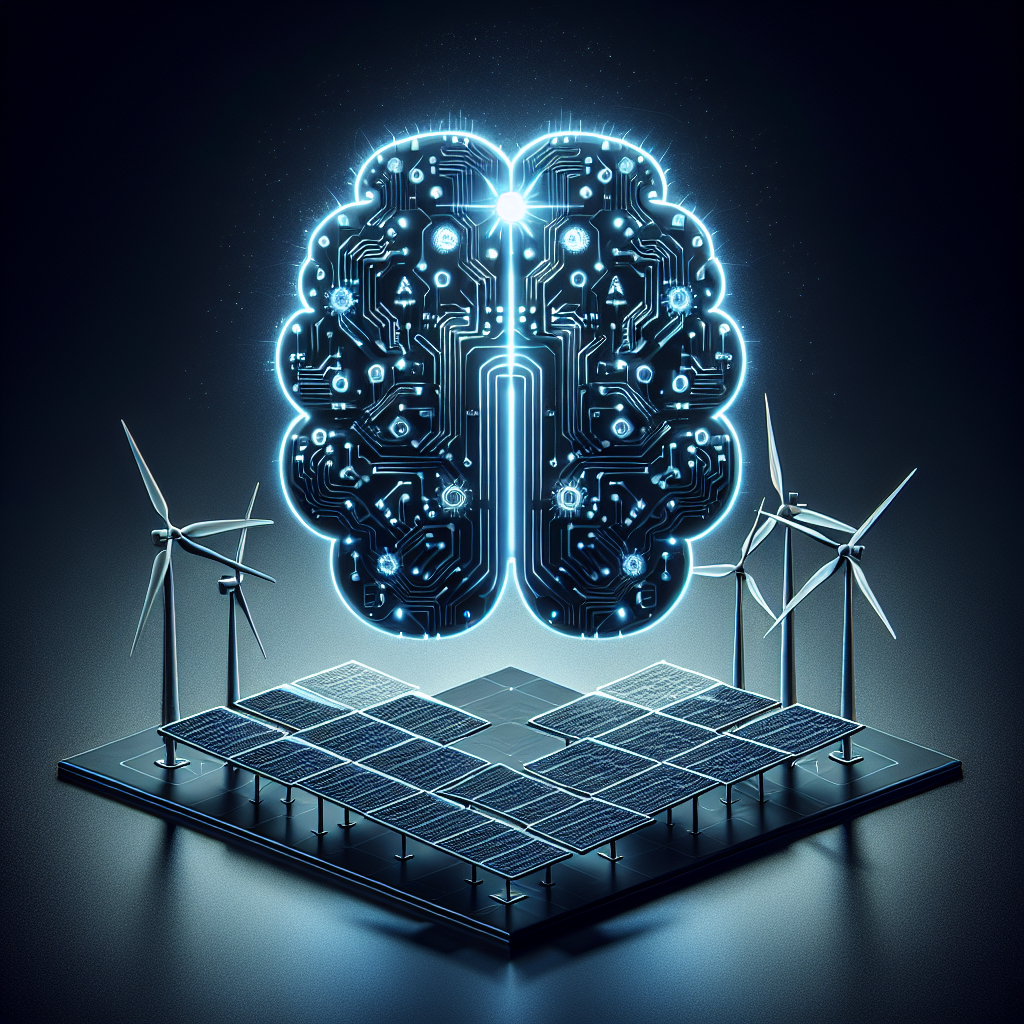Artificial Intelligence Strategies for Improving Renewable Energy Performance
Introduction
Renewable energy sources such as solar, wind, and hydro power are becoming increasingly important in the transition to a sustainable energy future. However, the intermittent nature of these sources presents challenges for grid stability and energy storage. Artificial intelligence (AI) has the potential to address these challenges by optimizing the performance of renewable energy systems and improving their reliability and efficiency.
AI can be used to predict energy production from renewable sources, optimize energy storage and distribution, and improve overall system performance. In this article, we will explore some of the AI strategies that can be employed to improve the performance of renewable energy systems.
Predictive Analytics
One of the key challenges of integrating renewable energy sources into the grid is their intermittent nature. Solar panels only produce energy when the sun is shining, and wind turbines only generate power when the wind is blowing. Predictive analytics can help to address this challenge by forecasting energy production from renewable sources based on historical data and weather patterns.
AI algorithms can analyze historical data on energy production from solar panels and wind turbines, as well as weather data such as cloud cover and wind speed, to predict future energy production. These predictions can help grid operators to anticipate fluctuations in energy supply and demand and make adjustments to ensure grid stability.
Optimization Algorithms
AI can also be used to optimize the performance of renewable energy systems by adjusting energy production, storage, and distribution in real time. Optimization algorithms can analyze data on energy production, storage capacity, and demand to determine the most efficient use of resources.
For example, AI algorithms can optimize the charging and discharging of energy storage systems to maximize the use of renewable energy and minimize the use of fossil fuels. These algorithms can also optimize the scheduling of energy production from solar panels and wind turbines to match fluctuations in energy demand throughout the day.
Machine Learning
Machine learning is a subset of AI that involves training algorithms to learn from data and make predictions or decisions without being explicitly programmed. Machine learning can be used to improve the performance of renewable energy systems by analyzing data on energy production, consumption, and weather patterns to identify patterns and trends.
For example, machine learning algorithms can analyze historical data on energy production and consumption to identify patterns that indicate when energy demand is likely to be high or low. This information can be used to adjust energy production and storage to match fluctuations in demand and optimize system performance.
FAQs
Q: How can AI improve the performance of renewable energy systems?
A: AI can improve the performance of renewable energy systems by predicting energy production from renewable sources, optimizing energy storage and distribution, and analyzing data to identify patterns and trends that can be used to optimize system performance.
Q: What are some examples of AI strategies for improving renewable energy performance?
A: Some examples of AI strategies for improving renewable energy performance include predictive analytics, optimization algorithms, and machine learning. Predictive analytics can forecast energy production from renewable sources, optimization algorithms can optimize energy production and storage in real time, and machine learning can analyze data to identify patterns and trends.
Q: How can AI help to address the challenges of integrating renewable energy sources into the grid?
A: AI can help to address the challenges of integrating renewable energy sources into the grid by predicting energy production, optimizing energy storage and distribution, and analyzing data to identify patterns and trends that can be used to improve system performance.
Conclusion
AI has the potential to revolutionize the renewable energy industry by improving the performance and reliability of renewable energy systems. By using predictive analytics, optimization algorithms, and machine learning, AI can help to address the challenges of integrating renewable energy sources into the grid and ensure a more sustainable energy future. As AI technologies continue to advance, we can expect to see even greater improvements in the performance of renewable energy systems and a more efficient and reliable energy grid.

